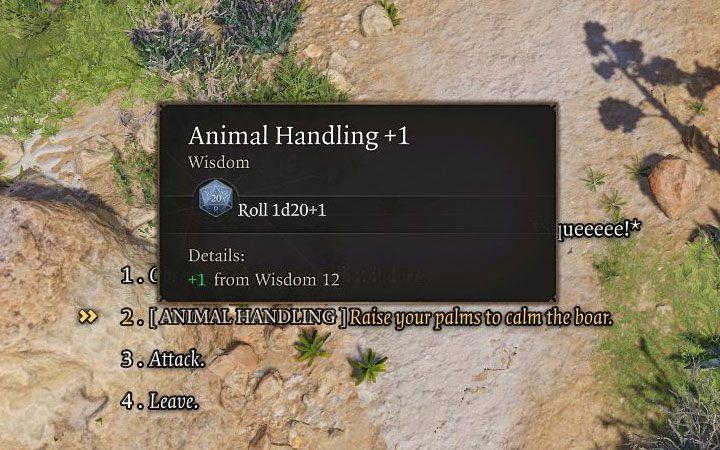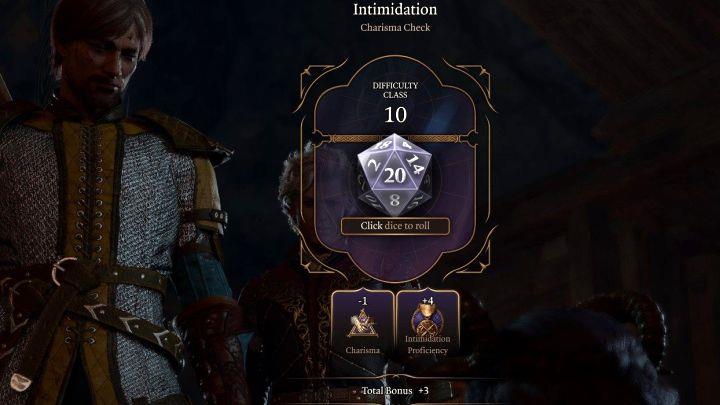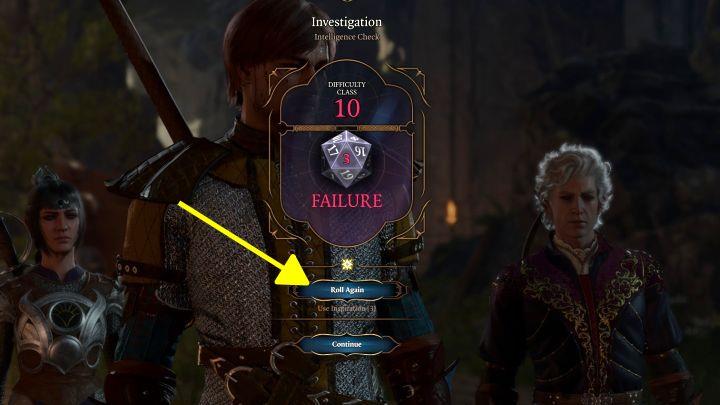Unveiling the Secrets of Repeated Ability Tests in Baldur’s Gate 3: Navigating Challenges with Ease Ever wondered whether you can retry those critical ability tests in Baldur’s Gate 3? From dodging deadly traps to persuading NPCs, mastering your character’s abilities is paramount. Dive into our comprehensive guide to discover the intricacies of repeating ability tests, ensuring your journey through Faerûn remains smooth and victorious. Learn how to maximize your chances of success and unlock new paths in this epic adventure. Will you master the art of repeated trials, or will fate decide your path? Find out now
How to prepare for a skill check?
To effectively prepare for a skill check in Baldur’s Gate 3, players should first ensure that their character’s relevant abilities are optimized. Each ability—Strength, Dexterity, Constitution, Intelligence, Wisdom, and Charisma—affects different skills and can significantly influence the outcome of skill checks. It is crucial to understand the specific skill associated with the ability being tested; for instance, Dexterity is key for tasks involving stealth or lockpicking, while Wisdom enhances skills like Insight and Medicine. Additionally, players should be aware of the Difficulty Class (DC) for the task at hand, which determines the target number they need to meet or exceed on a D20 roll. Utilizing items or spells that provide bonuses to ability checks can further increase success rates. Lastly, saving progress before attempting challenging checks allows players to retry if necessary, making strategic preparation essential for overcoming obstacles in the game.
- Skill checks are dice rolls that can be activated when you interact with an object or talk to an NPC. They determine how well your character does at something.
- Each check is tied to a specific Skill or Ability. Often, you’ll be able to choose from several different checks (e.g. intimidating the other person or deceiving them). Usually, these different techniques bring the same result (such as freeing a hostage), but not always.
- The skill check is done by the currently selected character. Use this to your advantage – choose the character with the highest skill relevant to the check. Unfortunately, even if you prepare well, a lot’s up to luck – you can fail even near-guaranteed checks.
- Before triggering a check, you can move your cursor over the stat’s name (example pictured). You’ll learn how many dice you’ll roll and what bonuses you’ll get (in our case, 1 from Wisdom).
- You should save the game before skill checks. That way you can redo them, or at least not spend any resources.
Factors affecting success rate
Factors that influence the success rate of ability tests in Baldur’s Gate 3 include character attributes, proficiency bonuses, and the specific circumstances of the skill check. Each test is fundamentally a dice roll, where the outcome is determined by rolling one or two dice and adding any relevant modifiers. For instance, a character with high charisma may perform better in social interactions, while proficiency in intimidation can enhance the chances of success in coercive scenarios. Additionally, players can prepare by saving their game before attempting a skill check, allowing them to reload and try again if they fail. However, most checks can only be attempted once unless specific conditions are met, such as using Inspiration to reroll or switching characters to leverage different skills.
- Triggering a skill check will take you to the dice rolling screen, where you’ll need to roll one or two dice.
- There are many factors affecting checks. In our example, our chances are worsened by our character’s low charisma, but also increased by their intimidation proficiency. You can also manually add other bonuses before rolling to increase your chances.
- You’ll pass the check if you roll equal or higher to its difficulty. In the example pictured above, the difficulty is 10. The final score is the die roll and the aforementioned additional bonuses added together (in our example, we have 3 to the final score).
Can all skill checks be redone?
In Baldur’s Gate 3, players often wonder whether all skill checks can be redone. The answer is nuanced; while many skill checks can indeed be attempted multiple times, certain conditions apply. For example, if a player fails a skill check during a dialogue or exploration, they can reload a previous save to try again, which is a common strategy to overcome difficult challenges. However, some checks may have hidden Difficulty Classes (DCs) that are only revealed upon success or failure, making it less straightforward to know when to retry. Additionally, the game’s mechanics allow for character abilities and modifiers to influence these checks, enhancing the chances of success on subsequent attempts.
- Most checks can only be attempted once. After a failed dice roll, the game may block the skill check but could make an exception if you were very close to succeeding.
- If there were several checks to choose from, sometimes you can try a different one.
- Most repeatable checks are tied to the environment, such as disarming traps and lockpicking. If you fail, you can spend Inspiration to reroll. We’ve described how to gather and spend Inspiration on the Inspiration page.
- If you roll a Critical Failure, that is a 1 on the d20 die, the game may not allow you to reroll even if you have Inspiration to spend.
How do ability scores impact skill checks in Baldur’s Gate 3
In Baldur’s Gate 3, ability scores are crucial for determining the outcomes of skill checks, which are essential for success in various tasks throughout the game. These scores represent your character’s inherent strengths and weaknesses across six core attributes: Strength, Dexterity, Constitution, Intelligence, Wisdom, and Charisma.
How Ability Scores Influence Skill Checks
- Skill Check Mechanics: When performing a skill check, players roll a d20 and add their ability modifier associated with the relevant ability score. The total is then compared to a predetermined Difficulty Class (DC) to determine success or failure.
- Ability Modifiers: Each ability score translates into an ability modifier, which is calculated using the formula (Ability Score−)/(\text{Ability Score}-10)/2(Ability Score−)/2. For example, a Strength score of 14 results in a +2 modifier. This modifier is added to the d20 roll during skill checks, significantly influencing the outcome.
- Proficiency Bonuses: If a character is proficient in a specific skill related to an ability score, they can add their proficiency bonus to the roll as well. This means that characters with higher ability scores and relevant proficiencies have a greater chance of succeeding in their actions.
- Active vs. Passive Checks: Skill checks can be active (where players roll the dice) or passive (automatically calculated by the game). Passive checks are determined by a formula that includes the ability modifier and any proficiency bonuses.
- Impact on Gameplay: The strategic allocation of ability scores during character creation not only affects combat effectiveness but also plays a vital role in exploration and social interactions. For instance, high Charisma can enhance dialogue options and persuasion attempts, while high Dexterity can improve stealth and acrobatics.
Understanding how ability scores impact skill checks allows players to create more effective characters tailored to their preferred playstyle, ensuring they can tackle the diverse challenges that Baldur’s Gate 3 presents.
How do ability scores influence combat effectiveness in Baldur’s Gate 3
In Baldur’s Gate 3, ability scores significantly influence combat effectiveness, shaping how characters engage in battles and interact with enemies. Each of the six core ability scores—Strength, Dexterity, Constitution, Intelligence, Wisdom, and Charisma—plays a distinct role in determining a character’s performance during combat scenarios.
Key Influences of Ability Scores on Combat
-
Attack Rolls:
- Melee Attacks: Strength is used for melee attack rolls. A higher Strength score increases the chance to hit and the damage dealt when attacking with melee weapons. For example, a character with a Strength score of 16 adds a +3 modifier to their attack roll, making it easier to land hits against enemies.
- Ranged Attacks: Dexterity governs ranged attacks. Characters using bows or other ranged weapons benefit from a high Dexterity score, which similarly enhances their attack rolls and damage output. For instance, a character with a Dexterity score of 16 also adds +3 to their attack roll.
-
Armor Class (AC):
- Dexterity’s Role: A character’s Dexterity score contributes to their Armor Class, which determines how difficult they are to hit. Higher Dexterity results in better AC, making characters more resilient against enemy attacks. This is particularly important for characters who rely on agility and speed in combat.
-
Hit Points and Durability:
- Constitution: This ability score affects a character’s hit points (HP), with higher Constitution scores providing more HP. This increased durability allows characters to withstand more damage in combat, making them less likely to fall in battle. Classes like Barbarians and Fighters benefit greatly from high Constitution due to their roles as frontline combatants.
-
Initiative:
- Combat Order: Dexterity also influences initiative rolls, determining the order of actions in combat. Characters with higher Dexterity are more likely to act first, allowing them to strike before enemies can respond.
-
Saving Throws:
- Ability scores are also used for saving throws against various effects and spells during combat. Each ability score corresponds to different types of saving throws that can mitigate or avoid damage from enemy spells or abilities.
-
Spellcasting:
- For spellcasters, the relevant ability score (Intelligence for Wizards, Wisdom for Clerics and Druids, Charisma for Bards and Sorcerers) determines the effectiveness of their spells. A higher score improves the chance to hit with spell attacks and increases the damage dealt.
Conclusion
Understanding how ability scores impact combat effectiveness is essential for optimizing character builds in Baldur’s Gate 3. By strategically allocating points to Strength, Dexterity, Constitution, and other abilities during character creation and leveling up, players can enhance their chances of success in battles while tailoring their playstyle to fit their preferred class and role within the party.


